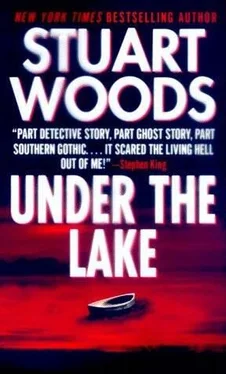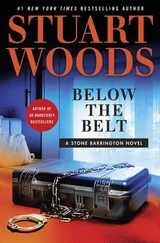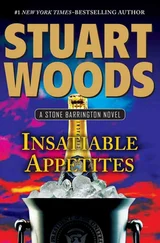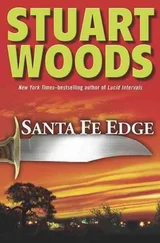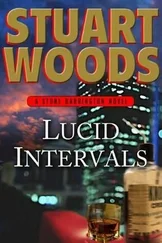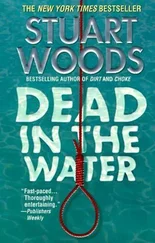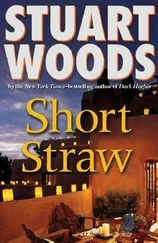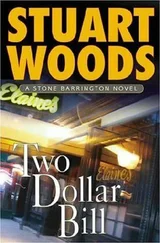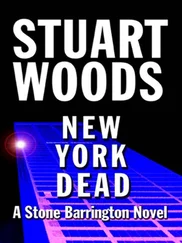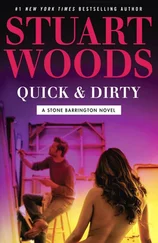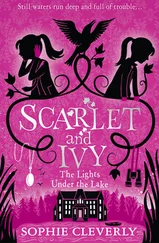Bo stared open-mouthed at the piano, then, an animal noise rising in his throat, he fired at the instrument. Bits of wood flew everywhere, but the instrument played madly on. Bo fired again; then he stopped and spun to his left. Howell turned to follow his stare.
She looked different, more womanly. The childish overalls were gone, and she wore a simple, virginal, white dress, tied at her small waist with a narrow sash. Her dark hair fell in long waves around her shoulders, and there was a suggestion of lipstick, stark against her white skin. Two buttons undone revealed the swell of her full breasts, straining against the tight fabric. Her huge, dark eyes were fixed on Bo Scully; a little smile played about her lips. Then, she turned and looked at Scotty for the first time, frankly, with curiosity; then, it seemed, with something like approval.
Scotty stood, transfixed by her first sight of her true mother. Howell remembered a photograph he had seen at the Kellys, a family group on a front porch, a little girl of four or five. Now he knew why the child had looked familiar; she had looked like Scotty. Now the resemblance was less strong, but it was there. They were mother and daughter, Kathleen and Scotty.
Bo pumped the shotgun again. He was now emitting a continuous noise made up of a growl and a scream. He raised the gun, took aim and, to Howell’s helpless horror, fired at the girl. He was astonished when she seemed unaffected, her expression never changing, but a large section of the French doors behind her exploded into fragments.
Three shots, Howell managed to count to himself, in spite of what was happening; five more to go.
Kathleen O’Coineen stood, smiling indulgently, as Bo emptied the shotgun at her, affecting only what lay behind her.
Howell hurled himself across the room toward the desk, clawed the drawer open and found Scotty’s pistol, its shells lying next to it. Frantically, he began loading the gun. He had two shells into the chambers when Kathleen, ignoring him and Scotty, turned gracefully, glanced beckoningly at Bo, and walked out of the house, onto the deck. Bo threw the shotgun through what was left of the French doors and ran after her. Howell saw him stop on the deck, staring out at the lake. Howell finished loading the pistol and went after him, then stopped as he reached the door. Scotty was right behind him, dragging the chair to which she was handcuffed.
Bo gazed, wide-eyed, out over the valley. Howell gazed with him. It was just as in the dream, the house ablaze with light, the fog on the rising lake, and all of it lit by a large moon.
Bo said something, not quite a word, and started moving down the stairs from the deck.
“Wait a minute, Bo!” Howell said, and pointed the gun at the sheriff. Bo glanced at him, then continued down the stairs. “Stop, Bo!” Howell said, louder this time. Bo had reached the bottom of the steps and was moving toward the road to the valley. Howell lowered the gun and screamed as loudly as he could. “Bo, don’t go down there! For Christ’s sake, come back!”
Howell moved to follow him, but Scotty had squeezed her chair through the door and grabbed at him, getting hold of his belt. “No, no, Johnny, don’t follow him!”
Howell struggled on down the stairs, dragging Scotty after him, she dragging the chair. They made the bottom and moved a few steps toward the road before Scotty was able to stop him.
“You can’t follow him, you can’t!”
Suddenly, Howell realized she was right and stopped. They stood in front of the cabin and watched Bo run down the road and toward the house, as fast as his legs could move him. Occasionally, he shouted something, but they couldn’t make it out. Finally, they saw him reach the house and run through the front door.
Suddenly the valley was gone, and the lake was back at their feet. They stood, silently, unable to react. Then, as they watched, a soundless explosion of light came from under the lake, rising to a brightness that hurt their eyes, then, pulsating erratically, faded slowly into darkness, until they were left, staring once again at dark and peaceful waters. There was no moon. The crickets began to chirp again.
A touch of dawn had begun to light the sky. Howell turned to lead Scotty back into the cabin and stumbled over Denham White’s double-barreled shotgun, lying at the lake’s edge.
“Where did that come from?” Scotty asked.
Howell picked up the weapon and broke it to inspect the empty chambers. “It’s something I misplaced,” he said.
“Tell me again how this tape recorder works?” The Georgia State Patrol captain’s voice came down somewhere between skepticism and outright incredulity.
“It’s voice-activated,” Howell explained again. “Once it’s turned on, it only records when it hears something, and it automatically controls the recording level. Miss MacDonald managed to turn it on when I arrived at the cabin, when Scully was occupied with me.”
“Okay, I’ll take your word for that,” the captain said. The late afternoon sunlight reflected off his collar insignia. “And you say that right after this shooting on the tape, Sheriff Scully threw down the shotgun, ran out onto the deck, ran down the steps out there, and jumped in the lake.”
“Jumped in and started swimming away,” Howell said. “I tried to stop him, but he wouldn’t listen to me; he just kept going.”
“We found his body nearly a mile along the lake,” the captain said, shaking his head. “I expect we’ll get a suicide-by-drowning verdict from the coroner. Wasn’t a mark on him.”
“He seemed to hear the piano and see something outside on the deck before he started firing,” Howell said. “I think he must have been hallucinating. He’d had a lot of bourbon to drink.”
“Well, there’s no piano on the tape,” the captain said. “I guess maybe he must have been. I’ll tell you, though, I’d have said that Bo Scully was just about as level-headed a fellow as I ever knew. This sure don’t fit him.”
“I guess every man has his breaking point,” Howell said. “He’d been under a lot of pressure, I think, what with having killed Sutherland and having the drug delivery aborted.”
“I wouldn’t say exactly aborted,” the captain came back. “We’re still looking for that furniture van. The GBI have picked up an Air National Guard lieutenant colonel down at Dobbins Air Force Base, though. Maybe they’ll get something out of him.”
“I’d be willing to bet that his training logs jibe with the schedule from Scully’s files.”
The captain put his hands on his knees and stood up. “Well, counselor,” he said to Enda McCauliffe, “I can’t see any reason to detain your clients. Everything they’ve told me seems to be backed up by the evidence we have.” He put on his Stetson hat and squared it carefully. “I don’t mind telling you, though, this is the damnedest thing I’ve investigated in nineteen years on the job.”
“I don’t doubt it,” McCauliffe said, shaking the man’s hand.
“Just as long as they’re available if we need to know anything else,” the captain said, and took his leave.
McCauliffe came back to the fireplace and flopped into a chair. “I think we did the best thing,” he said to Howell and Scotty. “If you’d told him what you told me, we’d never hear the end of it, not for the rest of our lives.” Mac still looked skeptical.
“I think you’re right,” Howell said. “I’d be hard pressed to tell the truth about what happened; I’m still not sure what the truth is.”
“I don’t have any speculation to offer,” the lawyer said, “but I do have Bo’s will.” He reached into his coat pocket and withdrew, a heavy, blue, legal envelope. “He typed this out himself and brought it to my office to be witnessed a few days ago. Following Bo’s instructions at the time, I opened it and read it when you called me and told me he was dead.”
Читать дальше
